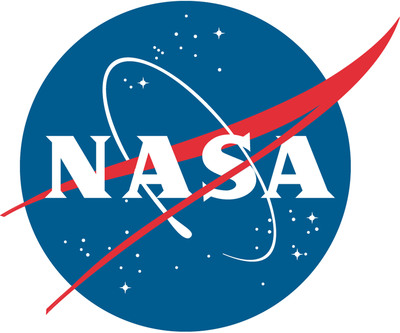
The Established Program to Stimulate Competitive Research ( EPSCoR) program supports science and technology research and development at colleges and universities in areas, such as remote sensing, nanotechnology, astrophysics and aeronautics. All of these are applicable to NASA's work in Earth science, aeronautics, and human and robotic deep space exploration. Results of this research may be incorporated into ongoing agency work.
Thirteen universities will receive as much as $750,000 each for work conducted over a three-year period for the following proposed projects:
- Bio-Inspired polytetrafluoroethylene-Based Solid Lubricant Coatings on Nickel-Titanium for Space Mechanisms and Aerospace Applications – University of Arkansas, Little Rock
- Laser based Remote Magnetometry with Mesospheric Sodium Atoms for Geomagnetic Field Measurements – University of Delaware, Newark
- GEOCORE: Geospatial Studies of Coral Reef Ecology and Health using Satellite and Airborne Data – University of Guam, Mangilao
- Autonomous Control Technology for Unmanned Aerial Systems with Agricultural and Environmental Applications in Central Pacific Islands – University of Hawaii, Honolulu
- Space-Grade Flexible Hybrid Electronics – University of Idaho, Moscow
- Coordinated Position and Attitude Control for Formations of Small Satellites – University of Kentucky, Lexington
- High-Fidelity Loci-CHEM Simulations for Acoustic Wave Propagation and Vibration – University of Mississippi, Oxford
- Exploring Extreme Gravity: Neutron Stars, Black Holes and Gravitational Waves – Montana State University, Bozeman
- Autonomous Structural Composites for Next Generation Unmanned Aircraft Systems – New Mexico State University, Las Cruces
- Development of Nanoporous Adsorbents for Aqueous Phase Separations in Life Support Systems – University of Puerto Rico, San Juan
- University of The Virgin Islands BurstCube: Developing a flight-ready prototype Gamma-Ray-Burst detection nanosatellite – University of The Virgin Islands, St. Thomas
- Fast Traversing Autonomous Rover for Mars Sample Collection – West Virginia University, Morgantown
- Advanced Optical Measurements of Ice Adhesion on Icephobic Aircraft Surfaces – University of Wyoming, Laramie
NASA is awarding to nine universities approximately $900,000 and an opportunity to conduct research and technology development aboard the International Space Station for the following proposed projects:
- Growth of Large, Perfect Protein Crystals for Neutron Crystallography – University of Nebraska, Omaha
- On-Orbit Structural Health Monitoring of Space Vehicles – New Mexico State University, Las Cruces
- 3-D Printed Titanium Dioxide Foams Under Extreme Environment Exposure At Low-Earth Orbit – West Virginia University, Morgantown
- Enhanced Science on the International Space Station: Influence of Gravity on Electrokinetic and Electrochemical Assembly in Colloids – University of Kentucky, Lexington
- Arkansas CubeSat Agile Propulsion Technology Demonstrator Mission – University of Arkansas, Little Rock
- Evaluation of Graphene-Silicon Photonic Integrated Circuits for High-Speed, Light Weight and Radiation Hard Optical Communication in Space – University of Delaware, Newark
- Assessment of Radiation Shielding Properties of Novel and Baseline Materials External to the International Space Station – Oklahoma State University, Stillwater
- Satellite Demonstration of a Radiation Tolerant Computer System Deployed from the International Space Station – Montana State University, Bozeman
- Utilizing the International Space Station as a Test Bed to Validate the Performance of Nano-Enhanced Polymers Subjected to Atomic Oxygen and/or Hypervelocity Impact – University of Mississippi, Oxford
EPSCoR helps develop partnerships among NASA research missions and programs, academic institutions and industry. EPSCoR is managed by NASA's Office of Education in Washington, and in each participating jurisdiction by a program director who oversees the process of submitting grant proposals and the work performed with the grant funding.
Abstracts for each 2017 EPSCoR education research selection are available at:
https://www.nasa.gov/offices/education/programs/national/epscor/home
To view the original version on PR Newswire, visit: http://www.prnewswire.com/news-releases/nasa-awards-grants-for-research-flight-opportunities-to-22-universities-300484655.html
SOURCE NASA
| Contact: |
| NASA
Established Program to Stimulate Competitive Research (EPSCoR) Katherine Brown, Headquarters, Washington, 202-358-1288 Email Contact Web: http://www.nasa.gov |








